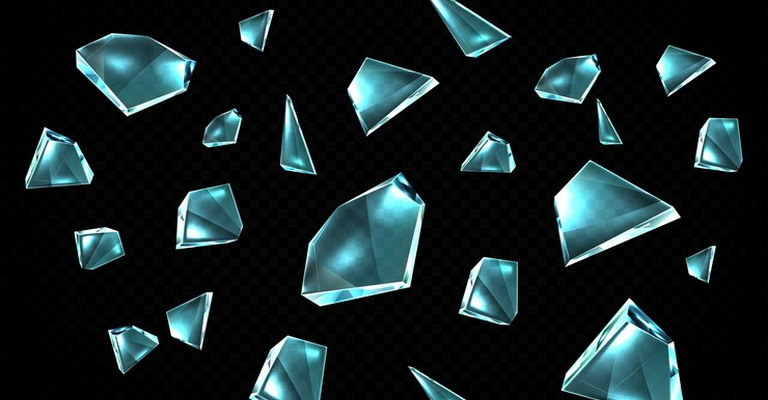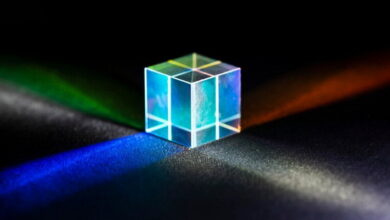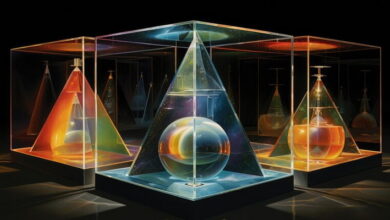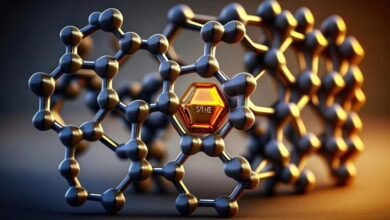Crystal Defects MCQs with Answers

Welcome to the Crystal Defects MCQs with Answers, it helps learners quickly identify areas for improvement in Crystal Defects Online Test.
| Crystal defects are deviations from the perfect, ordered arrangement of atoms or ions within a crystal lattice, impacting the physical and chemical properties of materials. These defects can be classified into several types, including point defects and dislocation defects.
Point defects in crystals involve vacancies, where atoms or ions are missing from their lattice sites, creating spaces or vacancies within the crystal structure. This type of defect can alter electrical conductivity and optical properties depending on the material. Dislocation defects occur when there is a misalignment or distortion in the arrangement of atoms or ions along specific planes within the crystal lattice. Edge dislocations involve an extra half-plane of atoms, while screw dislocations result from shear deformation. Dislocations can significantly influence the mechanical properties of materials, such as their strength and plasticity. Understanding crystal lattice defects is essential for materials scientists and engineers as they affect the performance and behavior of materials in various applications. From vacancy defects in crystals that affect diffusion rates to dislocation defects that influence deformation behavior, studying crystal defect formation is crucial for optimizing material properties and developing advanced materials for technology and industry. |
Crystal Defects Online Quiz
By presenting 3 options to choose from, Crystal Defects Quiz which cover a wide range of topics and levels of difficulty, making them adaptable to various learning objectives and preferences. You will have to read all the given answers of Crystal Defects Questions and Answers and click over the correct answer.
- Test Name: Crystal Defects MCQ Quiz Practice
- Type: Quiz Test
- Total Questions: 40
- Total Marks: 40
- Time: 40 minutes
Note: Answer of the questions will change randomly each time you start the test. Practice each quiz test at least 3 times if you want to secure High Marks. Once you are finished, click the View Results button. If any answer looks wrong to you in Quiz, simply click on question and comment below that question, so that we can update the answer in the quiz section.
Download Certificate of Crystal Defects Test
On the end of Quiz, you can download the certificate of the quiz if you got more than 70% marks.
Crystal Defects Flashcards
What type of crystal defect is formed when an atom is missing from its regular lattice site?
Vacancy
Which crystal defect involves the presence of an extra atom occupying an interstitial site?
Interstitial
What is the term for a line defect in a crystal lattice where the arrangement of atoms is disrupted?
Dislocation
Which type of crystal defect is formed when two atoms exchange positions in the crystal lattice?
Schottky defect
What type of crystal defect is formed when an atom occupies a normally vacant lattice site?
Interstitial
Which crystal defect involves a pair of vacancies where one vacancy is anion and the other is cation?
Schottky defect
What is the term for a planar defect in a crystal lattice where there is a misalignment of atomic planes?
Grain boundary
Which crystal defect involves the migration of atoms to the surface of a crystal due to thermal energy?
Surface defect
What type of crystal defect is formed when an atom moves from its regular lattice site to an interstitial site?
Frenkel defect
Which crystal defect involves a vacancy on one sublattice and an interstitial on another sublattice?
Frenkel defect
What is the term for a point defect in a crystal lattice where an atom occupies a site that is not normally occupied?
Interstitial defect
Which crystal defect involves the misalignment of atomic planes along a line in the crystal lattice?
Edge dislocation
Which crystal defect involves the movement of atoms in a crystal lattice in response to an applied stress?
Dislocation
What is the term for a point defect in a crystal lattice where an atom is missing from its regular lattice site and is replaced by a different type of atom?
Substitutional defect
Which crystal defect involves a half-plane of atoms shifted relative to the other half-plane in the crystal lattice?
Edge dislocation
What type of crystal defect is formed when an atom moves from an interstitial site back to its regular lattice site?
Frenkel defect
Which crystal defect involves a misalignment of atomic planes along a line with a spiral pattern?
Screw dislocation
What is the term for a point defect in a crystal lattice where an atom occupies a site that would normally be vacant?
Interstitial defect
What type of crystal defect is formed when an atom from one lattice site replaces an atom of a different type on another lattice site?
Substitutional defect
Which crystal defect involves a misalignment of atomic planes along a line that does not form a complete loop?
Edge dislocation
What is the term for a point defect in a crystal lattice where an atom is missing from its regular lattice site and creates a neighboring vacancy?
Schottky defect
Which crystal defect involves the movement of atoms from regions of high concentration to regions of low concentration?
Diffusion
What type of crystal defect is formed when an atom from the surface enters the crystal lattice and occupies a regular lattice site?
Surface defect
Which crystal defect involves the presence of a twin plane separating regions of crystal with different orientations?
Twin boundary
What is the term for a point defect in a crystal lattice where an atom from the surface enters the lattice and occupies an interstitial site?
Surface defect
Which crystal defect involves the migration of atoms to the surface of a crystal due to mechanical deformation?
Surface defect
What type of crystal defect is formed when an atom from the surface enters the lattice and replaces a regular lattice atom?
Surface defect
Which crystal defect involves the misalignment of atomic planes along a line that forms a complete loop?
Screw dislocation
What is the term for a point defect in a crystal lattice where an atom is replaced by a different type of atom?
Substitutional defect
Which crystal defect involves the misalignment of atomic planes along a plane separating regions of different crystal orientations?
Grain boundary
What type of crystal defect is formed when an atom from one lattice site leaves and is replaced by a different type of atom?
Substitutional defect
Which crystal defect involves the migration of atoms to the surface of a crystal due to impurities?
Surface defect
What is the term for a point defect in a crystal lattice where an atom replaces another atom of the same type?
Vacancy defect
Which crystal defect involves a misalignment of atomic planes along a line with a helical or spiral pattern?
Screw dislocation
What type of crystal defect is formed when an atom from the surface enters the lattice and occupies a regular lattice site?
Surface defect
Which crystal defect involves the presence of a planar boundary between two regions of the crystal with different orientations?
Grain boundary
If you are interested to enhance your knowledge regarding Physics, Computer, and Biology please click on the link of each category, you will be redirected to dedicated website for each category.



